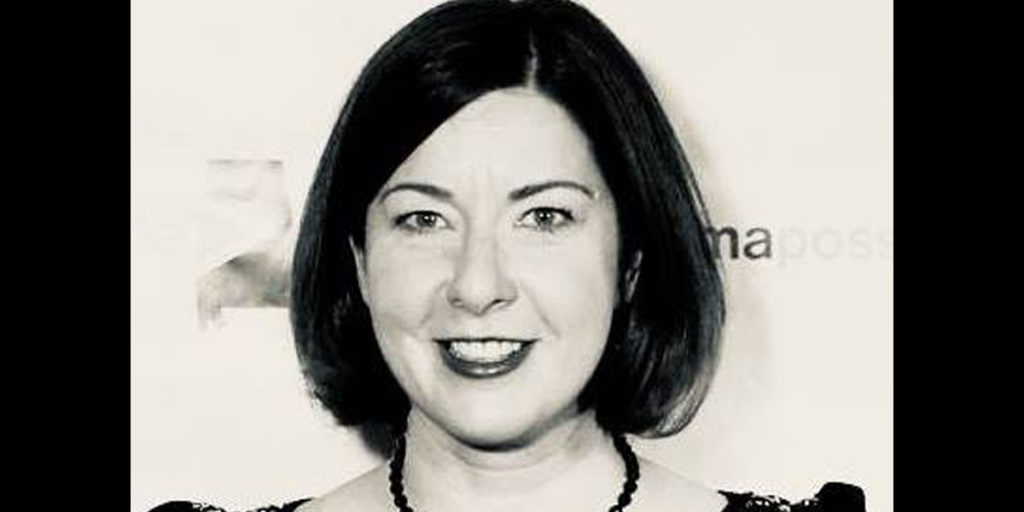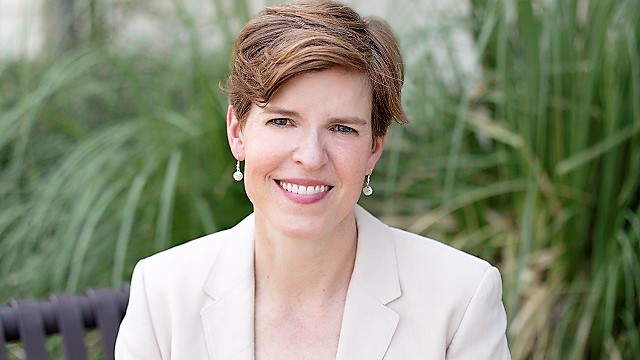Birmingham’s Kristina Scott pushes for simpler Student Aid submission process in US Senate

College students across the country universally dread one form: the FASFA. The Free Application for Federal Student Aid (FAFSA) form is both confusing and time consuming to fill out — for many families the FAFSA is longer than their tax form — and yet it’s a necessary task for students who need aid in paying their tuition. On Tuesday, the U.S. Senate’s Health, Education, Labor and Pensions (HELP) Committee held a hearing to hear from experts across the country on the benefits, and how to best, streamline the FASFA application. Among those experts was Birmingham’s own Kristina Scott, executive director of Alabama Possible — a nonprofit organization that removes barriers to prosperity in Alabama through education, collaboration, and advocacy. “FAFSA continues to be a barrier to post-secondary attainment. Most people get help filing their taxes from something like HR Block or using Turbo Tax,” Scott testified. “One of my questions is do we need to build a similar system for FAFSA completion or would our limited private resources be better spent supporting student success.” Scott explained Alabama is the nation’s sixth poorest state, and 900,000 Alabamians, 300,000 of whom are children, live below the poverty line. “A low-income student is only half as likely as a high-income student to complete a postsecondary certificate or degree by age 26. However, those low-income Americans who do obtain a college degree are five times more likely than their peers to rise out of poverty,” Scott explained to the committee. Scott made three recommendations to the committee on how to improve the FAFSA process: Streamline the FAFSA. A streamlined FAFSA with 15-25 questions about the student, their family, and where they want to go to college would give the US Department of Education the ability to assess a student’s need while cutting out unnecessary and often-intrusive questions. Focus the process on funds available to pay for college. Focus the process on what a family is expected to pay, instead of on grants and other assistance for which they qualify, is confusing and off-putting for the low-income families we serve. Decrease the verification burden.Verification is an audit-like process to confirm information provided on the FAFSA. Roughly half of all filers eligible for a Pell Grant are flagged for verification.
Personnel Note: Libba Vaughan to serve as new executive director for Leadership Birmingham

Libba Vaughan has been selected as Leadership Birmingham’s new executive director, the group’s board of trustees announced today. Vaughan, currently executive director for the Freshwater Land Trust, will serve as Leadership Birmingham’s fourth executive director, effective Sept. 1. Her selection follows an extensive search and selection by the organization’s executive search committee. Vaughan fills the role previously held by Ann Florie, who served in the position 14 years and recently announced her retirement. Vaughan previously directed the Freshwater Land Trust’s philanthropy and communications and served as the director of UAB’s office of Service Learning and Undergraduate Research.“Libba is an extremely talented and community-focused leader, and she’s just who is needed to carry on Leadership Birmingham’s long tradition of developing successful leaders,” said Mike Warren, chairman of Leadership Birmingham board of trustees. “Her drive to help make our city better now and for future generations is evident in her accomplishments with the Freshwater Land Trust and with other efforts she continues to successfully lead today. We are thrilled she is joining us.” “We are excited Libba is bringing her experience to this new role. Her enthusiasm for connecting people and bringing businesses and communities together to accomplish great things is infectious,” said Guin Robinson, chair of Leadership Birmingham’s executive search committee. “Our committee conducted a very extensive search and vetted a number of wonderful candidates. I am proud of their hard work and dedication in finding the best fit. Libba will undoubtedly help take Leadership Birmingham to the next level.” Vaughan is on the board of Alabama Possible, the UAB Honors College Leadership Board, and the One Great Community Council. She is a member of the Rotary Club of Birmingham and The Women’s Network. Vaughan, a 2018 graduate of Leadership Birmingham, led the Freshwater Land Trust’s successful land conservation, restoration and Red Rock Trail System projects, including the recently completed Kiwanis-Vulcan Trail. She also raised funds for the organization’s largest operating budget increase during her tenure. At UAB, she launched a faculty development program that increased university and community engagement. “Leadership Birmingham is vital to the success and prosperity of greater Birmingham,” Vaughan said. “It is the incubator and inspiration for ideas and connections and actions that make our region a better place for all of us, not just its graduates. “I am so proud of what the board, staff, partners and I have accomplished together at the Freshwater Land Trust and what they are positioned to do in the future. I am honored to be asked to build on my collaborative experience to serve Leadership Birmingham and continue and grow its transformative impact,” she said. More than 1,700 people have graduated from Leadership Birmingham since it began in 1983. The program’s purpose is to inform and educate participants through a series of issue-oriented monthly programs and is based on the belief that knowledge and relationships are key elements of effective community leadership. In addition, Leadership Birmingham directs programming for the Alumni Association and Youth Leadership Forum, a program for 10th- and 11th-grade students from public, private and parochial schools in Jefferson County. Republished with the permission of the Alabama Newscenter.
250,000 Alabama children live in poverty, state ranked 6th poorest in U.S.

Despite ever-improving unemployment numbers, Alabama’s economy continues to lag behind the rest of the nation’s. That’s according to a new report by Alabama Possible, a statewide nonprofit organization that removes barriers to prosperity through education, collaboration, and advocacy. The group released their 2018 Alabama Poverty Data Sheet on Tuesday, which revealed the Yellowhammer State is the sixth poorest state in the U.S. According to their findings, Alabama’s median household income is just $46,309, which translates to $11,308 less than the national median household income. Poverty in Alabama isn’t just secluded to one part of the state — over 800,000 Alabamians live below the poverty line, which is $24,257 for a family of four — and according to the report, 15 of Alabama’s 67 counties have a poverty rate higher than 25 percent. Key findings 17.2 percent of Alabamians live below the federal poverty line – a noticeably larger percentage than the national average of 14 percent Alabama’s median household income for African Americans is $21,165 less than white families’ median household income 250,000 Alabama children live in poverty Alabama’s child food insecurity rate is 22.5 percent, which is higher than the national average of 17.5 percent. Alabama has a notably high food insecurity rate at 17.7 percent. Improvement Alabama Possible, did note that there is good news to share. The 2018 poverty rate is at its lowest rate since they started publishing the Alabama Poverty Data Sheet in 2010. “It is encouraging to see that fewer Alabamians live in poverty year-over-year, but we still have 800,000 friends and neighbors who face significant barriers to prosperity,” said Kristina Scott, executive director of Alabama Possible, in a news release “It is also deeply concerning to see that the median household income for people of color in Alabama is roughly $15,000 – $20,000 lower than the median household income for white citizens. We must advocate for equitable systems that will dismantle poverty and promote prosperity for all Alabamians.”


